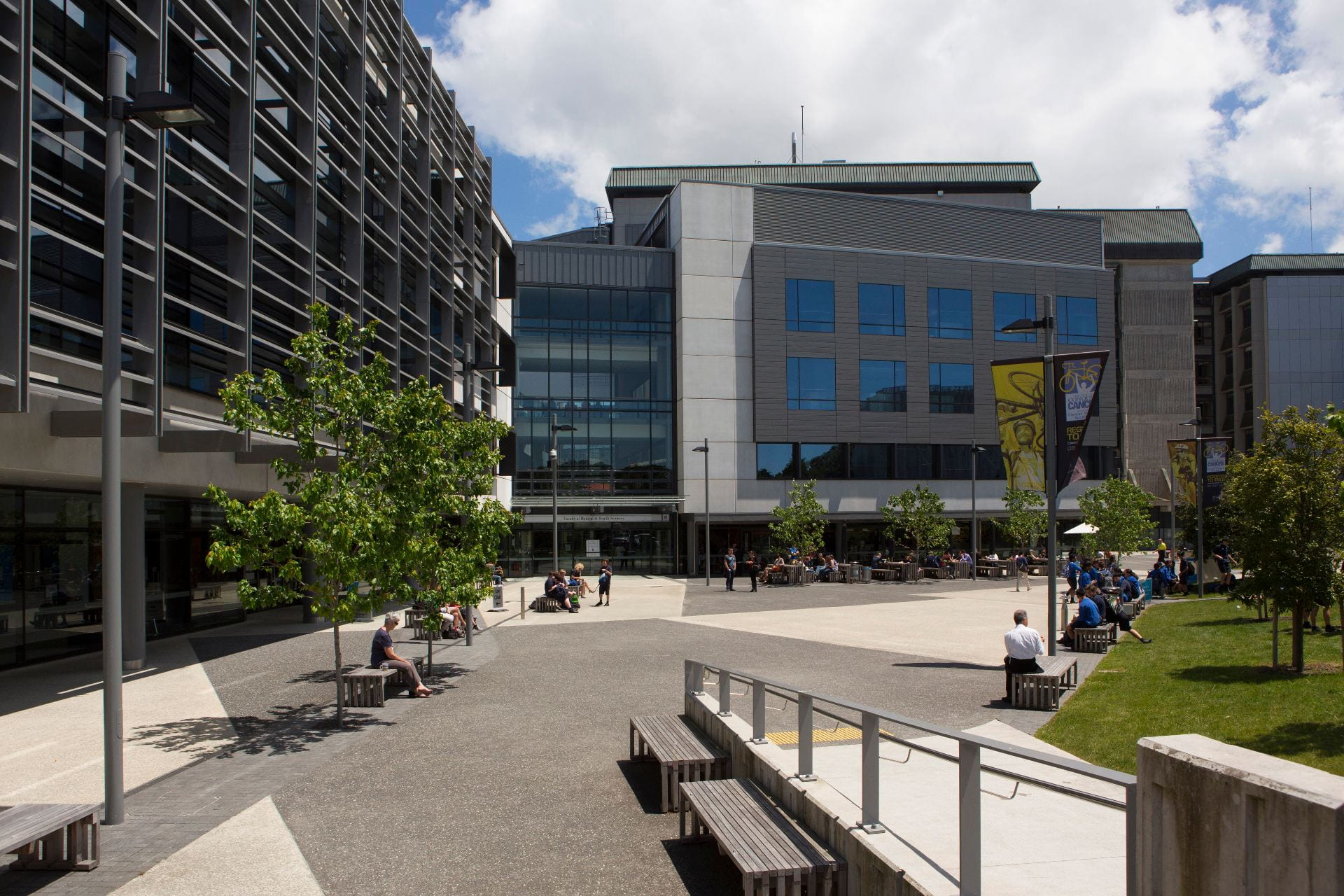
Postgraduate Courses in ICAMH
Kia Ora, Talofa Lava, Malo e lelei, Ni sa bula vinaka and Welcome
Our postgraduate courses in ICAMH are designed to develop the knowledge and skills of those in work where the focus is addressing the mental health difficulties and needs of child and/or adolescents.

Are these programmes right for you?
Our postgraduate courses are for gra
Since the courses began in 1998, the Postgraduate Certificate (the core qualification) has been completed by over 500 student-clinicians from all parts of New Zealand. Many have gone on to complete the other courses (the “elective courses, or Diploma, and now the Masters).
Most of the students have been nurses, occupational therapists and social workers working in ICAMH or similar services. Over the years, we have also had a number of psychologists, trainee psychiatrists, GP’s and school counsellors.
Courses are “blended”, combining some on-campus teaching with online presentations and work on Canvas, the University’s online learning management system. Wherever possible, coursework is based on day-to-day clinical work.
“If you haven’t already done something like this, everyone working in a CAMH service or similar should do the Certificate!”

An Overview of Our Programmes
Certificate in ICAMH (1-2 years / 60 points)
Here is a table showing the Summary Table
Click on the boxes below to find out more about the courses and programmes we teach
Development
Postgraduate Certificate in Health Sciences (Infant, Child and Adolescent Mental Health)
The Werry Centre is contracted by Skills Matter, Te Pou to coordinate and deliver the Postgraduate Certificate in Health Sciences (Infant, Child and Adolescent Mental Health).
This programme is designed for graduates in medicine, nursing, occupational therapy, psychology and social work who want to develop their skills and knowledge in infant, child and adolescent mental health (ICAMH).
It has been running continuously since 1998 and we have a high proportion of students completing the programme each year. In 2020, there was a 60% increase in funding and all additional places were filled.
The programme consists of three courses:
- Development and Psychopathology (2 x 15 points)
- Assessment and Treatment Planning (30 points)
Once completed, the Certificate can be used towards the Postgraduate Diploma.
Postgraduate Diploma
This programme is designed for graduates in medicine, nursing, occupational therapy, psychology and social work who want to develop their skills and knowledge in infant, child and adolescent mental health (ICAMH).
It consists of these courses, which can be completed as standalone courses to achieve a Certificate of Proficiency.
- CBT with children, adolescents and whānau (Parts 1 & 2, 2 x 15 points).
- Youth Forensics (Semesters 1 & 2).
- Early Childhood Mental Health (Semesters 1 & 2, 30 points).
- Models of Therapy (Semester 1, 15 points).
- Youth Addictions & Co-existing Problems (Semester 2, 15 points).
This Diploma can be used towards the Master of Health Practice (ICAMH).
Master of Health Practice (Infant, Child & Adolescent Mental Health)
In 2019, a Master of Health Practice (Infant, Child & Adolescent Mental Health) programme was offered for the first time, with first graduates expected in 2021. It was developed to meet the needs of graduates and healthcare professionals looking for an advanced postgraduate programme to develop their skills and knowledge of ICAMH.
This programme consists of achieving the following:
- Certificate in Health Sciences (ICAMH) (60 points)
- Diploma in Infant, Child and Adolescent Mental Health (60 points)
- Masters of Health Practice (ICAMH) (60 points)
These ICAMH courses are all offered through web-based learning and campus block teaching.
Health Psychology
HLTHPSYC 122 – Behaviour, Health and Development (Suzanne Stevens & Karolina Stasiak)
This 15-point course is the core psychology foundational course for students in the health sciences and those preparing for a range of clinical pathways, including pharmacy, medicine, nursing and medical imaging.
It enables students to understand the biological, psychological and social factors that contribute to human behaviour and apply that understanding to healthcare practice.
Medicine
MBCHB 221 and 321 (Year 2 and Year 3 of the Medical Programme) – Human Early Life Development Integrated Learning Activity (Trecia Wouldes)
MBCHB 401 & 501 Years 4 and 5 of the Medical Programme (Hiran Thabrew and Rebecca Mairs)
Diploma in ICAMH (1-2 years / 60 points)
Here is a table showing the Summary Table
Click on the boxes below to find out more about the courses and programmes we teach
Development
Postgraduate Certificate in Health Sciences (Infant, Child and Adolescent Mental Health)
The Werry Centre is contracted by Skills Matter, Te Pou to coordinate and deliver the Postgraduate Certificate in Health Sciences (Infant, Child and Adolescent Mental Health).
This programme is designed for graduates in medicine, nursing, occupational therapy, psychology and social work who want to develop their skills and knowledge in infant, child and adolescent mental health (ICAMH).
It has been running continuously since 1998 and we have a high proportion of students completing the programme each year. In 2020, there was a 60% increase in funding and all additional places were filled.
The programme consists of three courses:
- Development and Psychopathology (2 x 15 points)
- Assessment and Treatment Planning (30 points)
Once completed, the Certificate can be used towards the Postgraduate Diploma.
Postgraduate Diploma
This programme is designed for graduates in medicine, nursing, occupational therapy, psychology and social work who want to develop their skills and knowledge in infant, child and adolescent mental health (ICAMH).
It consists of these courses, which can be completed as standalone courses to achieve a Certificate of Proficiency.
- CBT with children, adolescents and whānau (Parts 1 & 2, 2 x 15 points).
- Youth Forensics (Semesters 1 & 2).
- Early Childhood Mental Health (Semesters 1 & 2, 30 points).
- Models of Therapy (Semester 1, 15 points).
- Youth Addictions & Co-existing Problems (Semester 2, 15 points).
This Diploma can be used towards the Master of Health Practice (ICAMH).
Master of Health Practice (Infant, Child & Adolescent Mental Health)
In 2019, a Master of Health Practice (Infant, Child & Adolescent Mental Health) programme was offered for the first time, with first graduates expected in 2021. It was developed to meet the needs of graduates and healthcare professionals looking for an advanced postgraduate programme to develop their skills and knowledge of ICAMH.
This programme consists of achieving the following:
- Certificate in Health Sciences (ICAMH) (60 points)
- Diploma in Infant, Child and Adolescent Mental Health (60 points)
- Masters of Health Practice (ICAMH) (60 points)
These ICAMH courses are all offered through web-based learning and campus block teaching.
Health Psychology
HLTHPSYC 122 – Behaviour, Health and Development (Suzanne Stevens & Karolina Stasiak)
This 15-point course is the core psychology foundational course for students in the health sciences and those preparing for a range of clinical pathways, including pharmacy, medicine, nursing and medical imaging.
It enables students to understand the biological, psychological and social factors that contribute to human behaviour and apply that understanding to healthcare practice.
Medicine
MBCHB 221 and 321 (Year 2 and Year 3 of the Medical Programme) – Human Early Life Development Integrated Learning Activity (Trecia Wouldes)
MBCHB 401 & 501 Years 4 and 5 of the Medical Programme (Hiran Thabrew and Rebecca Mairs)

Programmes and Courses
Certificate in ICAMH (1-2 years / 60 points
| Course Name | Course Code | Semester | Points | Teaching Days 2021 | Funding |
| Child & Adolescent Development | PSYCHIAT 747 | 1 | 15 | 22 & 23 Feb | Te Pou |
| Child & Adolescent Psychopathology | PSYCHIAT 740 | 2 | 15 | N/A | Te Pou |
| Assessment, Formulation & Treatment Planning in ICAMH | PSYCHIAT 768 | 1 & 2 | 30 |
24 & 25 Feb, |
Te Pou |
Child & Adolescent Development, PSYCHIAT 747
Course Objectives
The Psychiat 747 course is aimed at clinicians working in child and adolescent mental health who wish to advance their knowledge and understanding of child and adolescent development.
At the end of the 747 course you should be able to:
- In the clinic, explain, to clients and their families, and to colleagues (other health professionals, teachers, etc.), developmental processes and concepts relevant to client and family experiences and problems, and to planned assessments and treatments.
- Explain, to clients and their families, and to colleagues, the relation between development and context, including age, gender, culture, socio-economic status, and ethnicity.
- Compare and contrast perspectives on development particular to New Zealand, especially Māori, Pakeha and Pacific Island perspectives.
- Access, search, critically appraise, and apply the current research literature on psycho-social development.
Topics
- Attachment and Brain Development
- Development in Infants and Toddlers
- Development in Pre-schoolers
- Development in Middle Childhood
- Development in Adolescence
- Risk and Protective Factors
Teaching & Coursework: Hours & Marks
|
PSYCHIAT 747, Child & Adolescent Development, Single Semester Course, 15 points, 150 hours |
||
| COMPONENT |
HOURS (approx) |
% MARKS (as applicable) |
| Face-to-face teaching (a two-day block on campus) |
15 |
|
| Online (pre-recorded) presentations / interviews |
10 |
|
| Additional online material on Canvas |
10 |
|
| Guided reading (prescribed book and selected journal articles) |
65 |
|
| Online Reflections (students post explanations of how what they have come across links to topics – aspect of Development) |
4 |
|
| Online short comments (students respond to each others’ reflections) |
12 |
25 |
| Student presentations (students present to each other on examples of development in small regional groups) |
12 |
25 |
| Written assignment (examples of development) |
12 |
25 |
| Multiple choice questions (from prescribed text) |
10 |
25 |
Readings
Prescribed Book
Child Development: A Practitioner’s Guide, Third Edition by Douglas Davies
Other Readings
Readings are selected for each topic and are available to registered students online via the University Library
Course Coordinators

